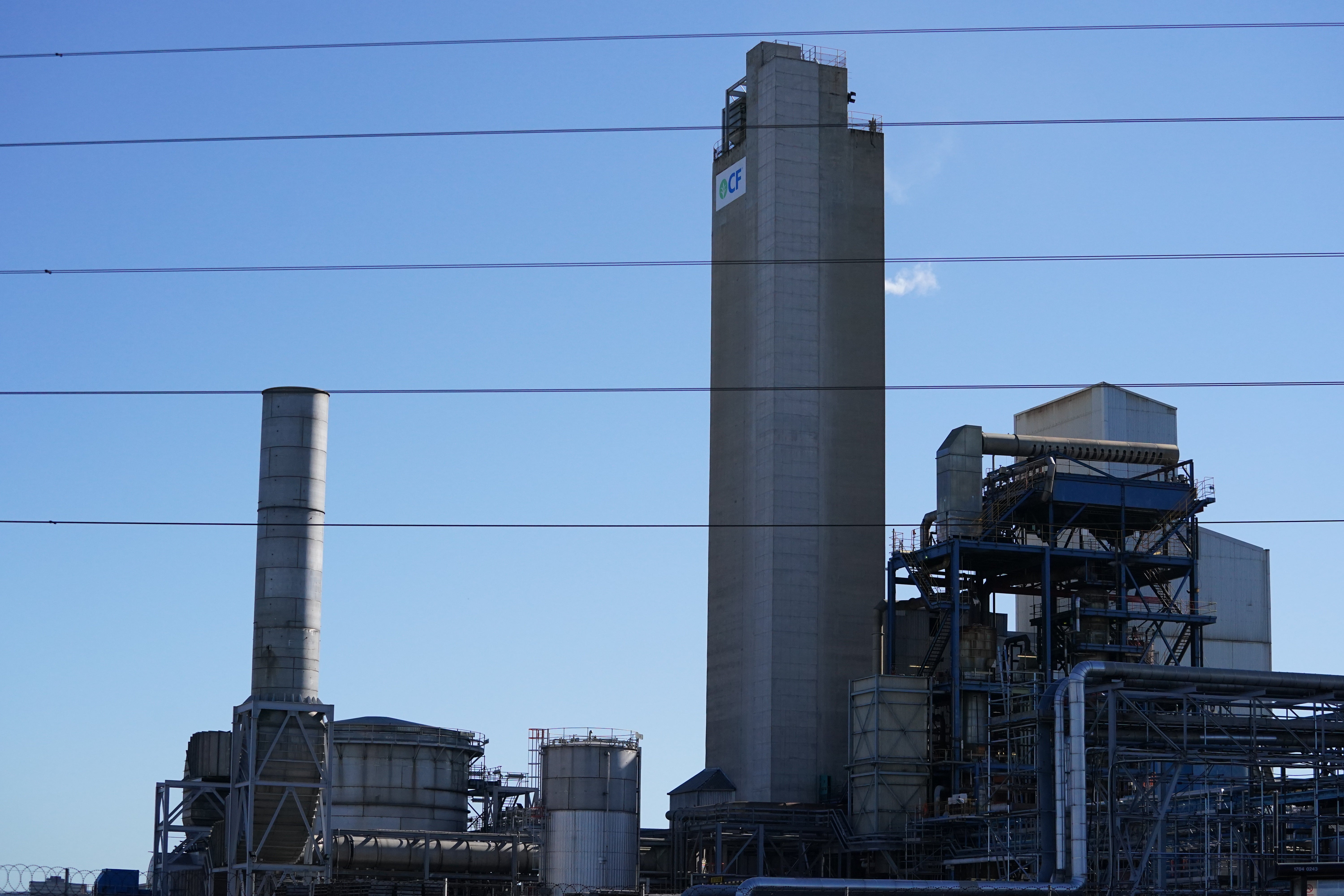Taxpayers to step in to help fund CO2 production to prevent food shortages
The gas is used for multiple purposes across the food supply chain.

Your support helps us to tell the story
From reproductive rights to climate change to Big Tech, The Independent is on the ground when the story is developing. Whether it's investigating the financials of Elon Musk's pro-Trump PAC or producing our latest documentary, 'The A Word', which shines a light on the American women fighting for reproductive rights, we know how important it is to parse out the facts from the messaging.
At such a critical moment in US history, we need reporters on the ground. Your donation allows us to keep sending journalists to speak to both sides of the story.
The Independent is trusted by Americans across the entire political spectrum. And unlike many other quality news outlets, we choose not to lock Americans out of our reporting and analysis with paywalls. We believe quality journalism should be available to everyone, paid for by those who can afford it.
Your support makes all the difference.Taxpayers will pay towards the operating costs of a major US-owned fertiliser manufacturer to ensure the supply of CO2 for the food sector continues amid the ongoing energy crisis.
It has been confirmed that a deal brokered by Business Secretary Kwasi Kwarteng will see the UK Government provide “limited financial support” towards CF Fertilisers’ running costs in order to prevent a food supply shortage at Britain’s supermarkets.
The agreement will be in place for three weeks while the “CO2 market adapts” to the surge in global gas prices, according to the Department for Business, Energy and Industrial Strategy (Beis).
Mr Kwarteng said the decision would avert “disruption” in the “many critical industries that rely on a stable supply” of carbon dioxide.
Spiralling energy costs have led to the suspension of operations at fertiliser plants which produce CO2 as a by-product, having a knock-on effect on the food industry particularly.
CF Fertilisers produces around 60% of UK’s CO2, used primarily by the food sector but also in the health and nuclear industries, but suspended operations at its Teesside and Cheshire plants because of high global gas costs.
Beis officials said the “exceptional short-term arrangement” with the American business would allow the company to immediately restart operations and produce CO2 at its Billingham plant in Teesside.
There had been fears that without action, the UK could face shortages on supermarket shelves.
Ian Wright chief executive of the Food and Drink Federation, had warned that shoppers may notice products missing “in about 10 days” if a solution was not found.
CO2 is injected into the packaging of perishable foods such as meat and salads to inhibit the growth of bacteria, typically prolonging the shelf life of products such as beef steak by around five days.
The gas is also used to stun animals prior to slaughter, and is deployed as a coolant for medicines and vaccines in the NHS, and likewise in nuclear programmes.
Announcing the details of the agreement with CF Fertilisers, Mr Kwarteng said: “This agreement will ensure the many critical industries that rely on a stable supply of CO2 have the resources they require to avoid disruption.
“The quick and decisive action we have taken to resolve the issue shows the seriousness with which we have approached it.
“In our ongoing response to manage the impact of global gas price rises, we will continue to protect businesses and consumers.”
The Prime Minister speaking to Sky News before the announcement, had looked to reassure the public by insisting “Christmas is on” following concerns within the poultry industry about turkey supplies.
Meanwhile, the turbulence in gas prices could potentially see more energy suppliers go to the wall while also placing additional financial burden on the UK’s poorest households.
Mr Kwarteng admitted hard-pressed families could face a “difficult winter” with rising energy bills.
The senior Government figure said the combination of rising gas prices and the looming £20 a week cut to Universal Credit was a “difficult situation” and he had spoken to Cabinet colleagues including Chancellor Rishi Sunak about the pressures facing households.
Some 4.4 million households on Universal Credit are poised to see their energy bills rise significantly in October – the same month the £20-a-week uplift to the benefits payment ends, the Resolution Foundation think tank has calculated.
The energy price cap is set to rise by £139 a year (12%) to £1,277 for a typical gas and electricity customer from October 1 while the Government’s uplift in Universal Credit, intended as a temporary measure during the coronavirus pandemic, ends on October 6.
Mr Kwarteng has vowed to protect consumers from bill hikes by keeping in place the energy price cap as he ruled out taxpayer bail-outs for companies which have been “badly run”.
Emma Pinchbeck, chief executive of trade association Energy UK, said the immediate concern needed to be about helping energy companies through “a really unprecedented time”.
Ministers and industry figures have said there is no risk of the lights going out this winter, with energy supplies secure despite the rising costs – an assurance Beis reiterated on Tuesday evening.